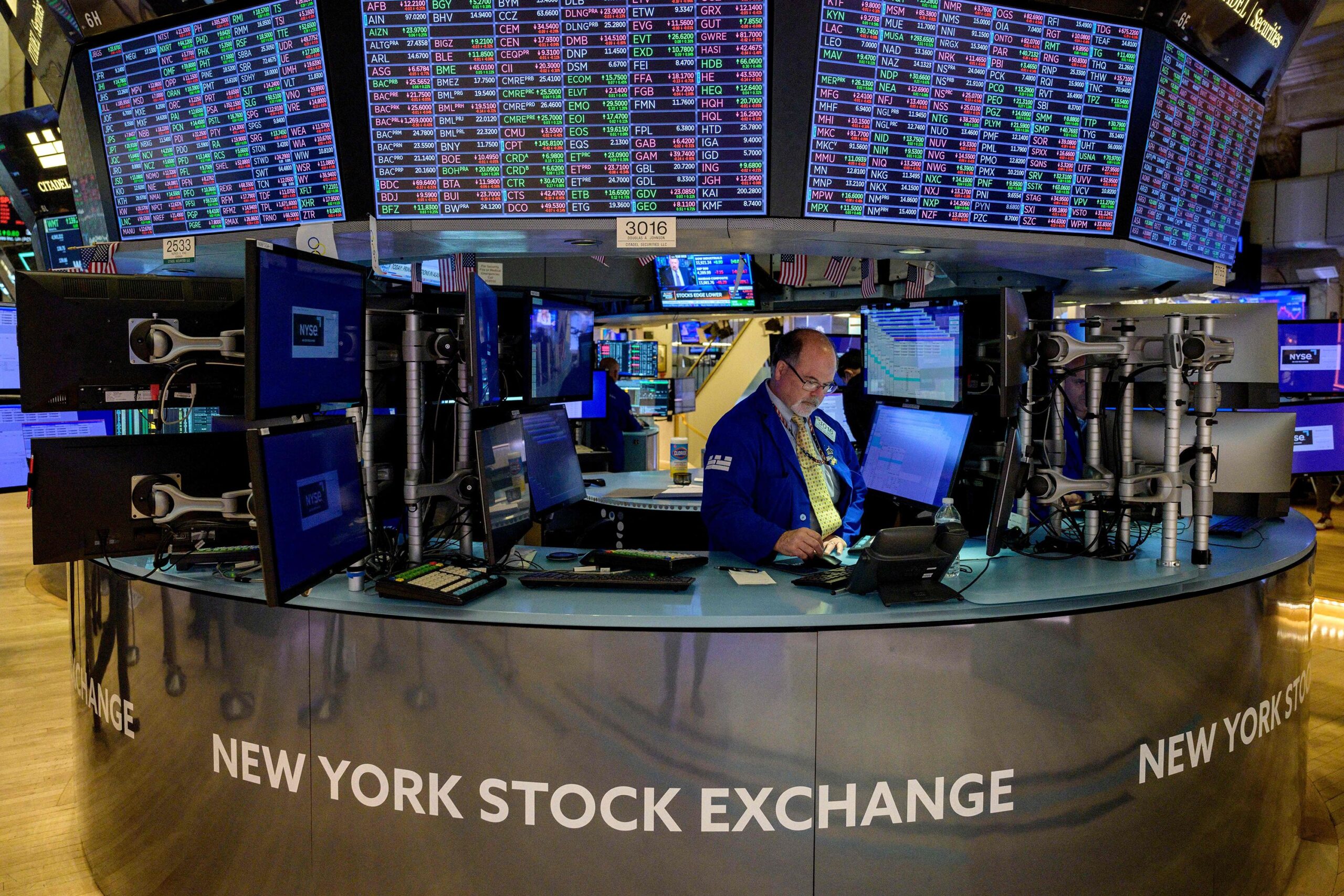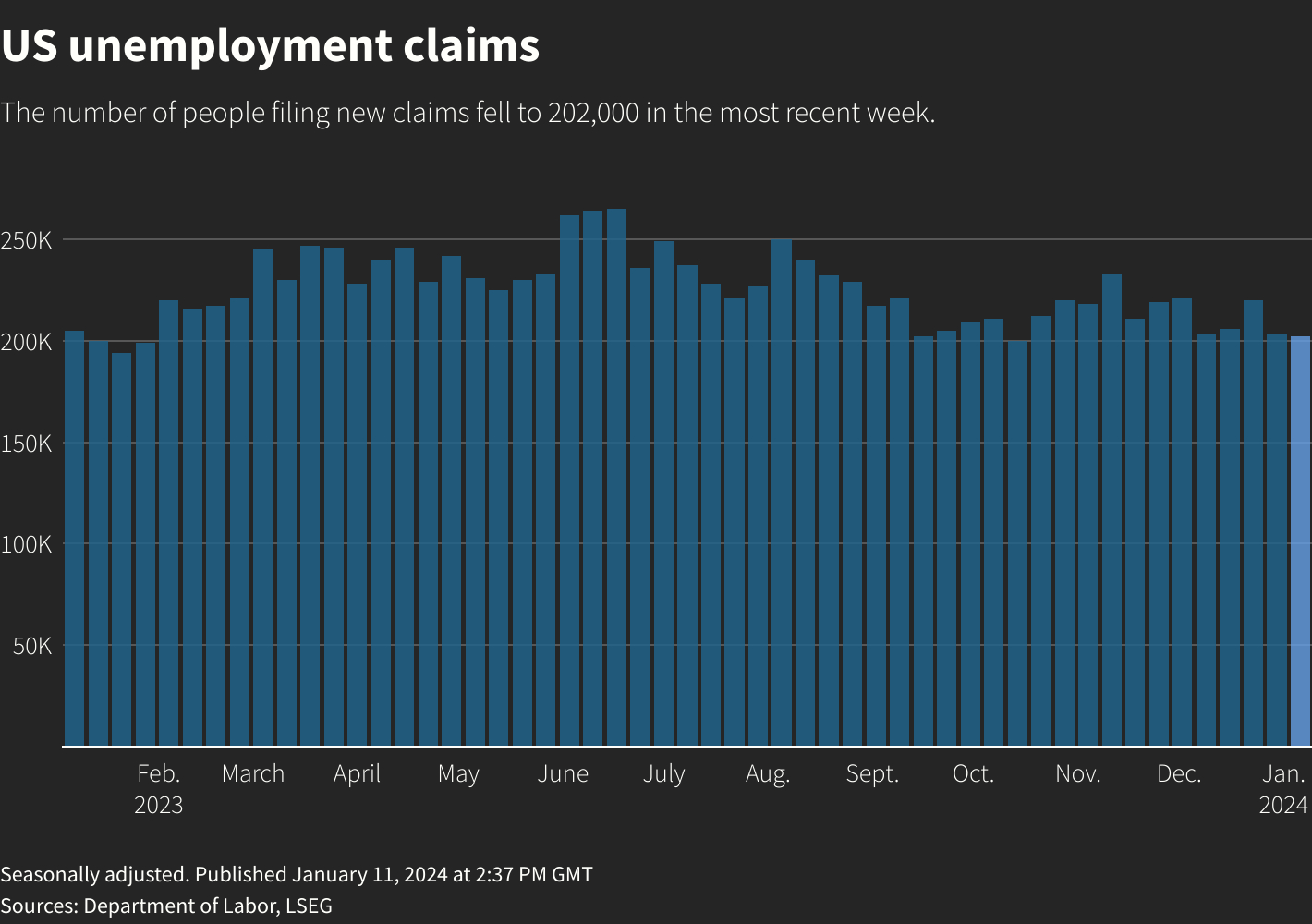
- Indices
- Stocks
Wall Street little changed on Thursday
Do you want to know how to make money from this?
Register for free and get expert advice, access to a training course and webinars.
Key points:
- US inflation rose 7% year on year in December, beating analysts’ expectations of 6.8%.
- Comments from Fed officials that inflation is not falling have dampened hopes that interest rates will be cut quickly this year.
- The S&P 500 index closed virtually unchanged, while the Nasdaq Composite index added only 0.54 points.
Wall Street’s rollercoaster ride continued on Thursday, with stocks finishing barely changed despite a bumpy journey. Worries about hotter-than-expected inflation put the brakes on hopes for an early interest rate cut by the Fed, but a dip in government bond yields prevented a steeper decline.
The Dow Jones inched up, adding a measly 0.04%, while the S&P 500 stumbled slightly, losing 0.07%. The Nasdaq managed a tiny gain, but barely enough to crack a smile.
The day started with a burst of optimism, with the S&P 500 even flirting with its record high before quickly retreating. It seems the stock market’s post-2023 rally is running out of steam, stuck in neutral with economic data sending mixed signals and Fed officials keeping mum on rate cuts.
After last year’s strong finish, investors are finding it hard to regain their footing. The S&P 500 is barely above where it was a year ago, highlighting the uncertainty hovering over the market.

Energy and technology stocks are up
Microsoft momentarily dethroned Apple as the world’s most valuable company, fueled by iPhone woes and its own rising share price. Apple’s crown wobbled as year-to-date declines approached 4%, driven by demand concerns. Meanwhile, Microsoft strutted its stuff, gaining 0.49% in a triumphant dance.
The S&P 500 mostly sulked, with only the energetic energy and tech sectors bucking the trend. They shimmied to the tune of 0.16% and 0.44% gains, respectively, while others drowned their sorrows in red numbers.
Cryptocurrency stocks, after a brief flirtation with green, tumbled back down to Earth. Coinbase tripped up on a 6.7% fall, Bitfarms plummeted 13.33%, and Riot Platforms faced a brutal 15.82% drop. Perhaps they were hungover from celebrating the US’s late Wednesday approval of the first spot Bitcoin ETF, a landmark decision for the digital coin.
Citigroup’s stock took a tumble, shedding 1.77% after reports revealed a hefty $3.8 billion bite out of its fourth-quarter earnings. This hefty provision for expenses sent shivers down Wall Street, with other banks feeling the chill.
JPMorgan Chase dipped 0.42%, Bank of America shed 1.33%, and even Wells Fargo couldn’t escape the red, slipping 0.08% as their own earnings reports loomed on Friday.
Meanwhile, the broader markets were a mixed bag. The S&P 500 managed to sniff out 40 new 52-week highs, but only one new low. The Nasdaq, ever the trendsetter, snagged 109 fresh highs while also sending 138 stocks to new 52-week lows.
What the latest economic data says
In a move exceeding expectations, the U.S. Labor Department reported a rise in consumer prices for December, driven primarily by increased spending on housing and healthcare. This figure contrasts with the separate report indicating an unexpected decline in the number of new unemployment claims, falling to 202,000 last week.
Despite this positive indicator on the employment front, Federal Reserve officials have expressed reservations regarding potential near-term rate cuts. Both Cleveland Fed President Loretta Mester and Richmond Fed President Tom Barkin emphasized that December’s inflation data did not significantly alter their belief that inflation is currently on a trajectory toward the central bank’s 2% target. Consequently, they stated that further information is required regarding the nature of inflation before considering a shift towards lower rates.

Do you want to know
How to make money from the news
Register for free and get:
- Expert consultation;
- Access to the training course;
- Opportunity to participate in webinars

